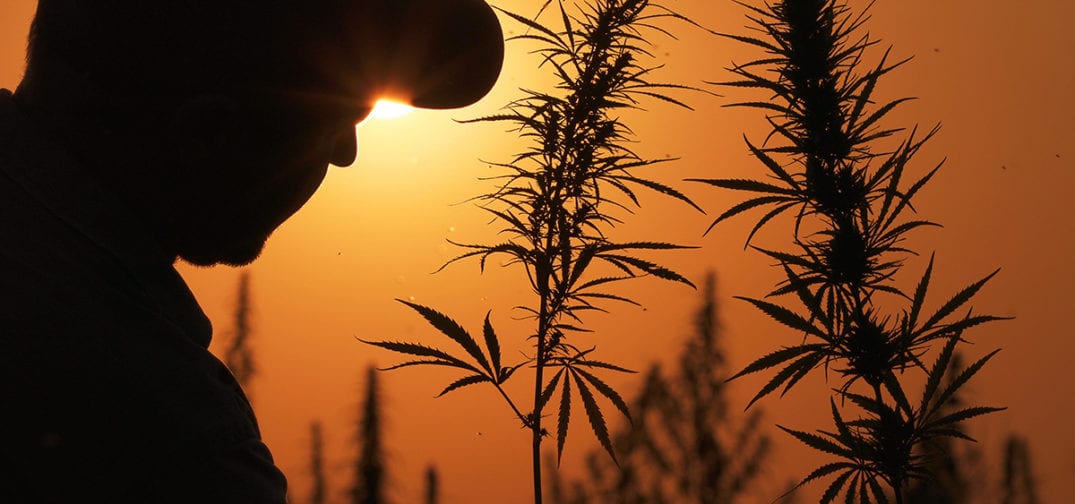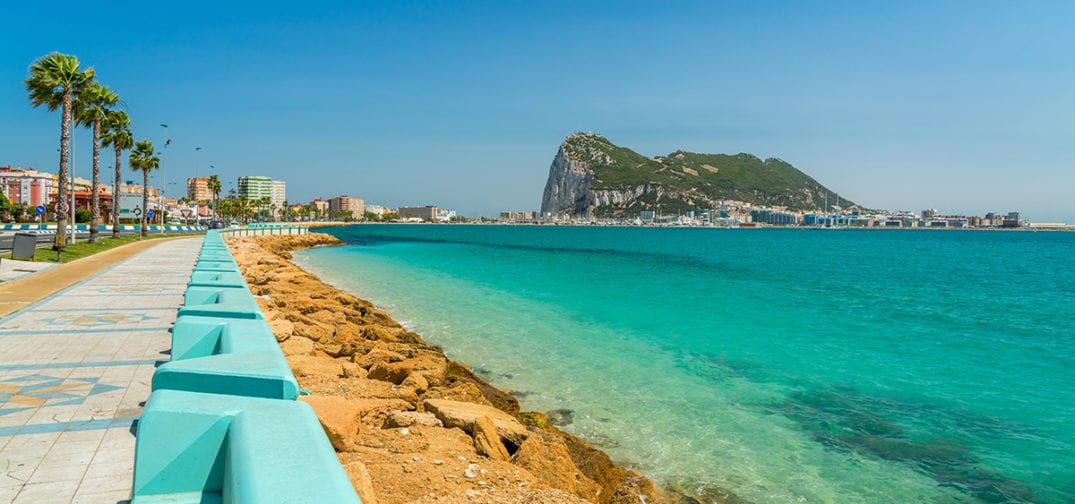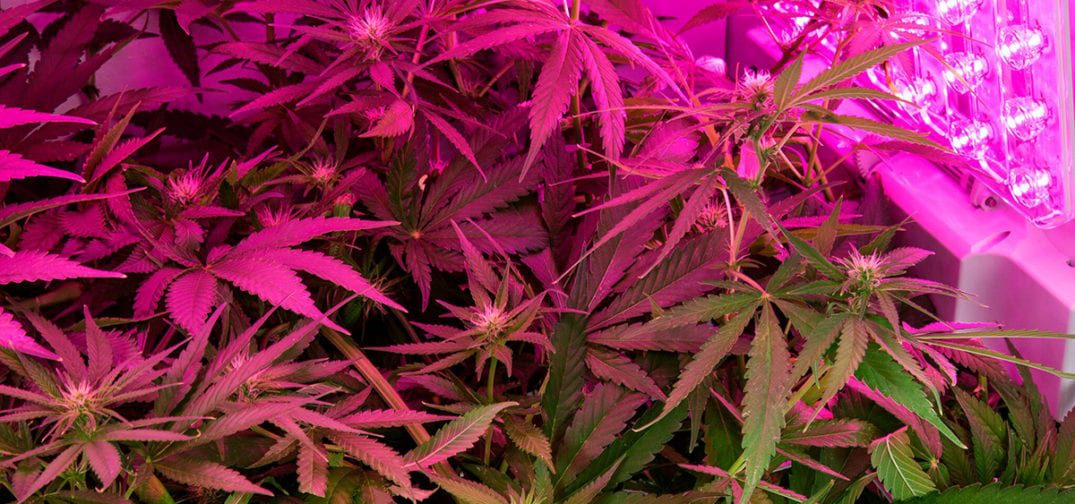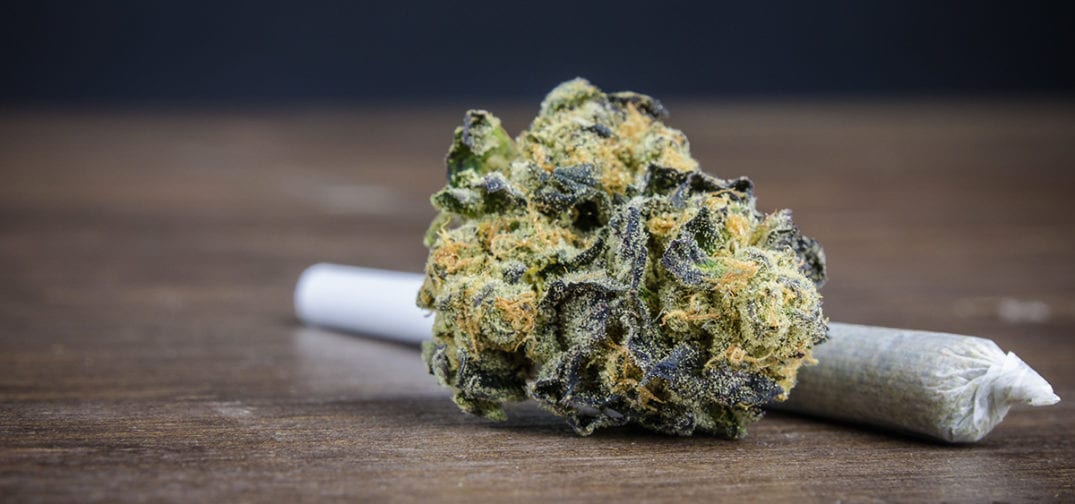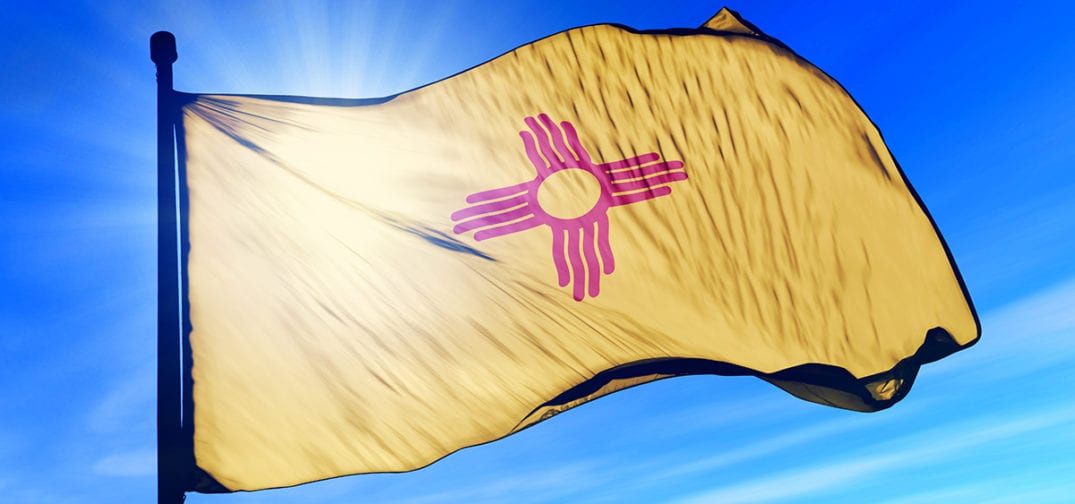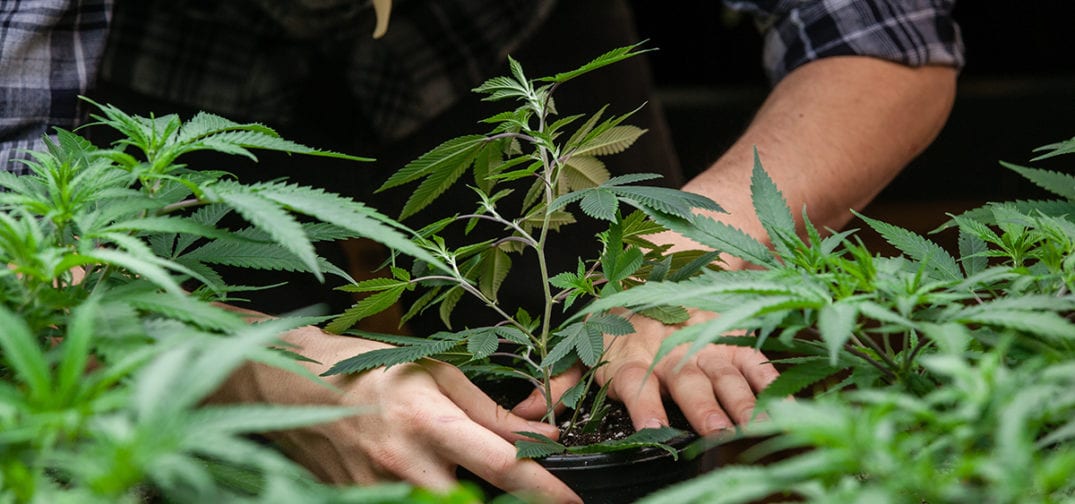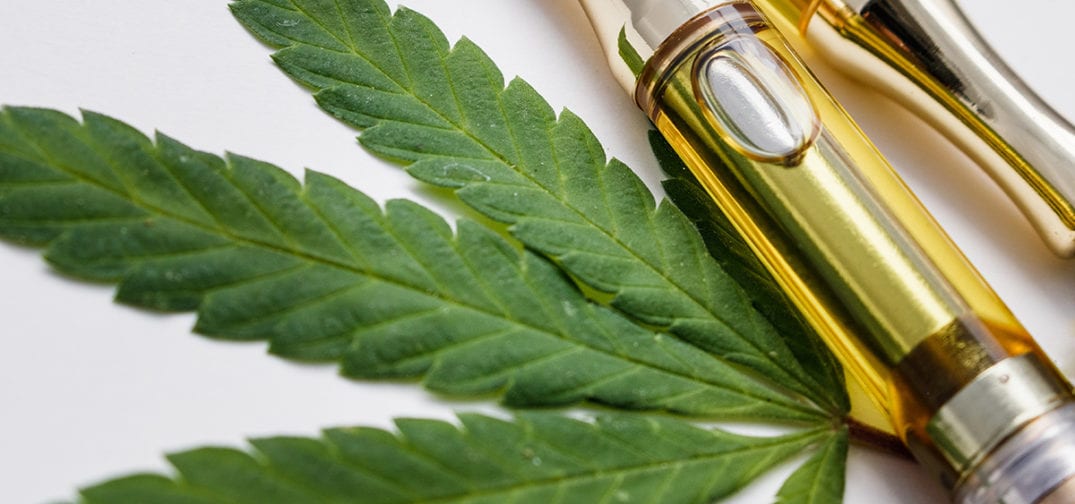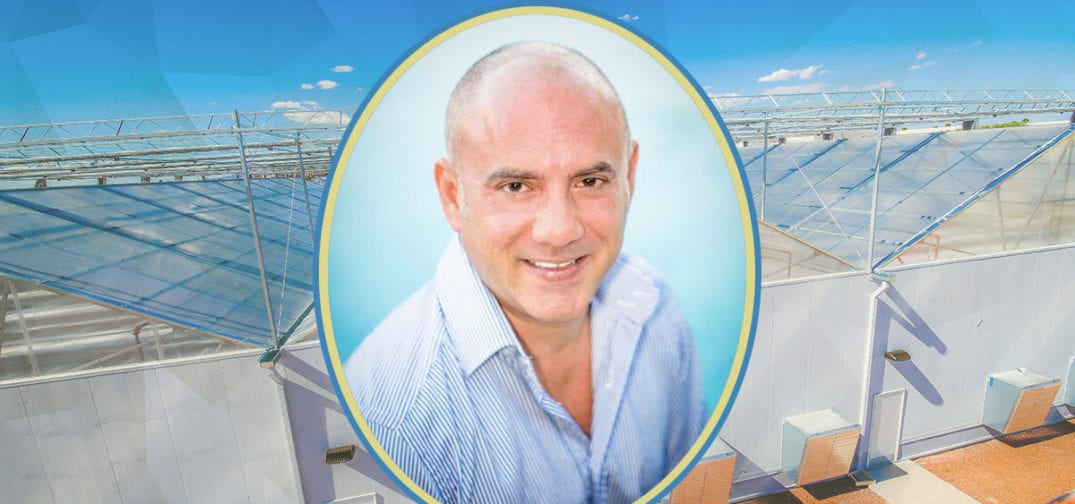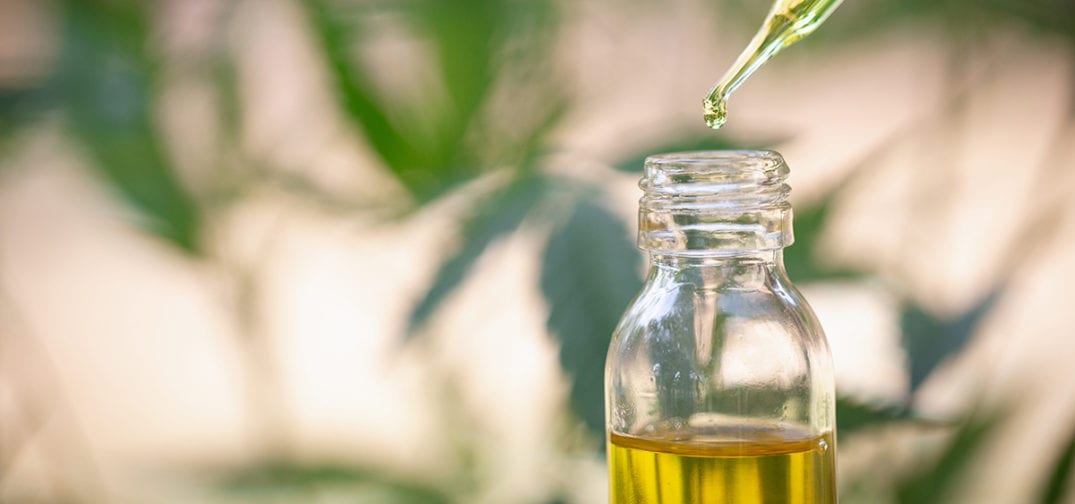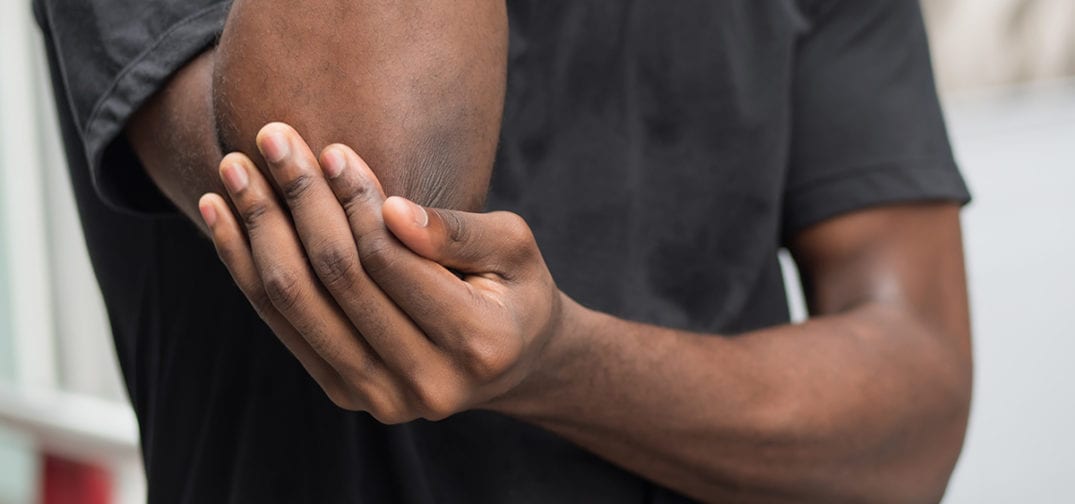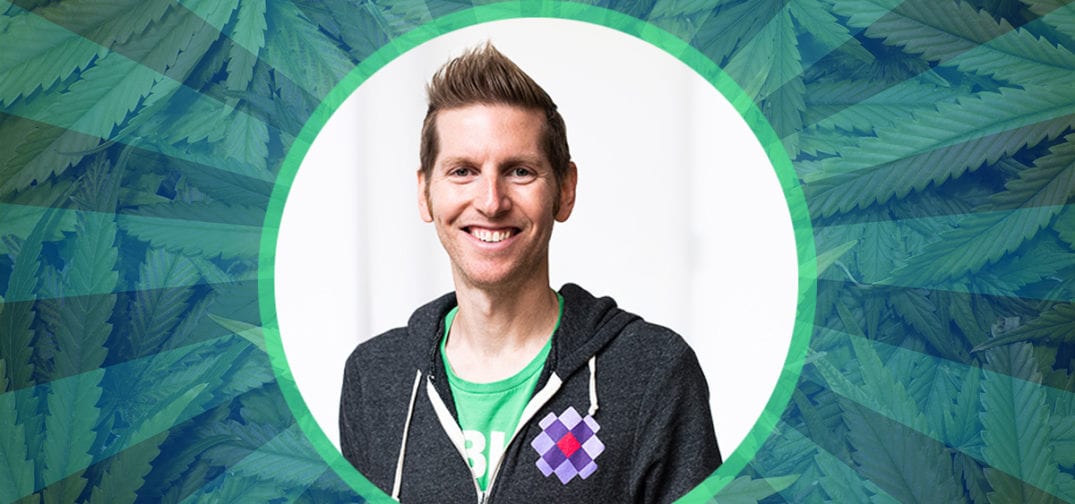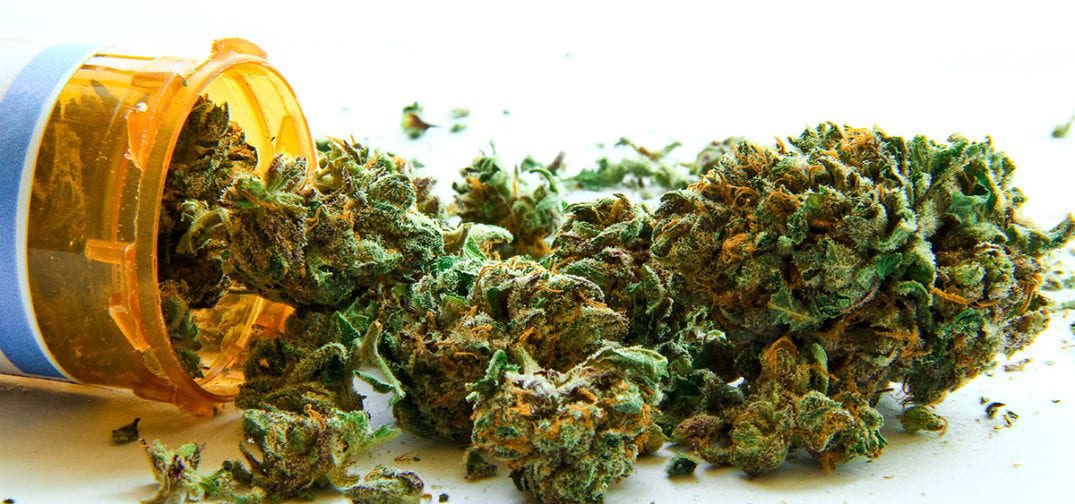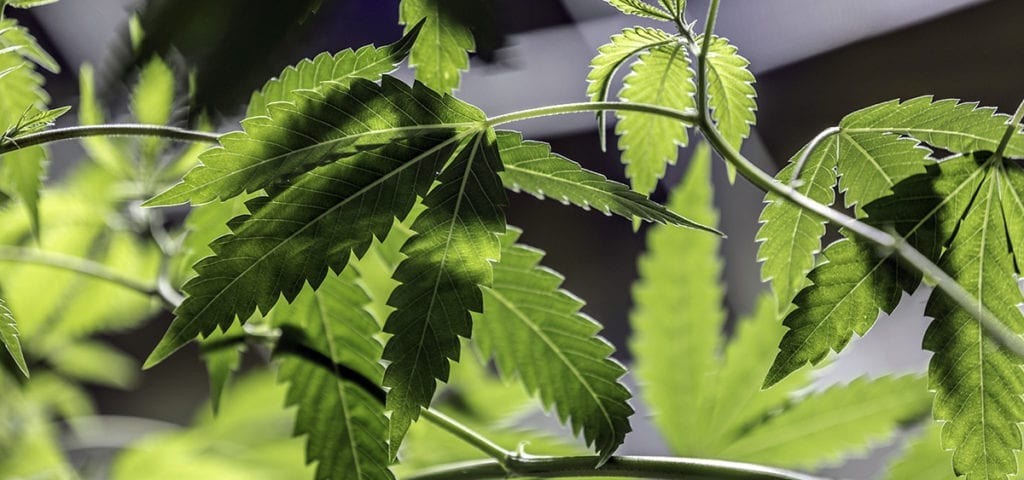Brad recently joined our podcast host TG Branfalt for an in-depth interview ranging from cannabis journalism — Brad worked for nine months as general manager for The Cannabist, the once-vibrant cannabis news outlet powered by The Denver Post — to the latest discoveries in cannabis classification, including a new emphasis on terpene content, unique cannabinoids such as CBG and THCV, and more! Brad also shares information about the latest wholesale cannabis offering from Confident Cannabis, Connect, which is capable of 3D-mapping cannabis purchase and distribution trends on a national scale.
Tune in to the interview via the media player below, or keep going to find a full transcript of this week’s Ganjapreneur.com Podcast episode!
Listen to the podcast:
Read the transcript:
Commercial: This episode of the Ganjapreneur Podcast is made possible by 420 friendly service providers in the Ganjapreneur Business Directory. If you need professional help with your business, from accounting to legal services to consulting, marketing, payment processing or insurance, visit ganjapreneur.com/businesses to find service providers who specialize in helping cannabis entrepreneurs like you. Visit the Ganjapreneur Business Directory today at ganjapreneur.com/businesses.
TG Branfalt: Hey there. I’m your host, TG Branfalt, and thank you for listening to the ganjapreneur.com podcast, where we try to bring you actionable information and normalize cannabis through the stories of ganjapreneurs, activists, and industry stakeholders. Today I’m joined by Brad Bogus, who’s the vice president of marketing for Confident Cannabis, makers of really, really cool software called Connect, and we’re going to talk a lot about that. He’s the former general manager of The Cannabist, he’s a fellow punk rock enthusiast. How are you doing this afternoon, man?
Brad Bogus: I am doing great, TG. Thanks for having me on, man.
TG Branfalt: Yeah, no. We’ve already had a chance to connect, look at Connect. No pun intended there. But before we talk about that man, tell me about you. How’d you end up in The Cannabist space, first with The Cannabist and now the vice president of marketing for Confident Cannabis?
Brad Bogus: Yeah. It’s really a weird and storied path because when you were talking about punk rock enthusiasm, I started off really essentially as a straight edger. When people that I went to college with know what I’m doing now, they tend to look at me with this head cocked to the side, like, “What the fuck are you doing? Cannabis?” I did a lot of my own stuff. I started two companies and ran them for collectively 11 years. I never really set out to be a business owner. I’ve always been an artist, but I tend to follow certain paths that interests me, and media and content, and all of the storytelling things that I’ve loved about art.
I found an application for it in the corporate world by making commercial video productions or online content media, and … I don’t know, after a while, I just got bored with it. I didn’t really have any intentions of doing that forever. I was just doing it, and I got to a point where I was like, “I’m done doing this. What do I want to do next?” It felt like the appropriate next step was to try getting a job. I hadn’t done that before, and to do it at a company that I actually really cared for because I had … When you’re an entrepreneur, you don’t really worry so much about, “I need to take any position that comes my way.” You’re like, “I can make this on my own if I need to, but I’m going to take the right position.”
I had talked with the mentor of mine. I wasn’t super excited about the Austin tech scene really, or the tech scene in general. That industry seemed busted and full of all sorts of issues, with sexism and diversity problems and just … it was stodgy and awful. Everything else around me seemed really uninteresting, and a mentor of mine was just like, “Just pick an industry that you actually think is really cool.” I had been using cannabis for a long time. I knew a lot about it. I just looked around and was like, “There’s not a lot of times in a lifetime that an entire industry starts from scratch, and can be done the right way,” which sounds a lot more interesting than trying to get an old industry to do good things.
That’s very hard. Anyway, that was what led me to look in the cannabis space. I found an opportunity at The Cannabist, knew a guy who worked at The Denver Post at a high level, that I had worked with previously in Austin. Got on the phone and went through the interview process and very quickly got hired on and recruited to Colorado.
TG Branfalt: What’d you do for The Cannabist as general manager? If you can just fill in our listeners on what happened to The Cannabist, which was really an excellent source for journalism in the space.
Brad Bogus: Yeah. The Cannabist was, I mean, only a nine month experience in my life, which in cannabis years, we talk about it being sort of like dog years. So extrapolate that, it feels like I was spending five years at The Cannabist. It was only nine months. That was an epic nine months. I joined The Cannabist right when it was at the peak of its reputation, and its reputation as the standard bearer for journalism in cannabis. It was launched by the Denver Post. It was the first major mainstream news organization that followed the SPJ code of ethics, and had the old school mastheads and they were now launching a space just dedicated to cannabis.
TG Branfalt: It was a big deal.
Brad Bogus: That’s a really big deal. Even made a bigger deal by the fact that The Denver Post previously came out against 64, which was the proposition that made cannabis recreationally legal in Colorado. Right? There’s a big shift in behavior in mainstream culture that occurred around The Cannabist being launched. It was launched by Ricardo Baca, who was the music editor of The Denver Post for 13 years prior, and just one of the most perfect personalities to be behind such a thing. It had been in place for about three years, maybe two and a half years by the time I joined on. It needed really its own team and its own leadership.
It wasn’t so much an extension of The Denver Post as it was a startup within the Denver Post. So the GM role of these types of projects tends to be a little bit more of sales role. I wasn’t really a salesperson, although I had done plenty of sales on my own in my own startups, but I brought content and marketing and branding and this understanding of digital media to the table that could really shift the way that The Cannabist operated, make it profitable, but also make it profitable without compromising its ethics. So that’s what they brought me on to do. The role of general manager, with me in place, was a little bit more like the CEO/publisher, except that we were within the Denver Post.
So the actual publisher of The Denver Post was the CEO and publisher on top of all of the properties that came out of the Denver Post. But if you took The Cannabist and made it its own standalone startup, I would have been the publisher, Ricardo, the editor in chief of our own publication. That’s the best way to think about it, right? That role. Generally, it’s a glorified sales director role within most media publications. But I didn’t run it that way, and our team really understood the value of The Cannabist brand in the industry, and so we did everything we could to elevate that. We swung for the fences on a number of different things like The Cannabist Awards that we held in Vegas or MJBiz, and it was really, really starting to soar.
But then the corporate overlords of media stepped in and ground their gears the way they do. These decisions are made by … Just to give you a sense of ownership here. The Cannabist is owned by the Denver post. The Denver Post is owned by the second largest media publisher in the United States called Digital First Media, which is owned by an even larger hedge fund called Alden Global, I think is the name of that group. What they do is they buy newspapers, they squeeze them down, they make sure … do a series of layoffs and cut expenses so they can generate profitability by removing expense. So a lot of these decisions are made by just evaluating spreadsheets. Right?
Unfortunately, no matter how good The Cannabist was doing for itself, no matter of the fact that it was actually profitable for the first time ever and was showing pretty large increases across the board for its numbers, it still wasn’t big enough to the overall spreadsheet, got crossed off, all of the salespeople were let go, they dissolved the role of the GM. Eventually dissolved the role of the editor in chief, and all of the dedicated journalists writing for The Cannabist, and it just became what it is now, which is a republisher of news on The Wire, and any news that comes out of The Denver Post that has anything to do with The Cannabist will be crossed … with cannabis in general, will be cross-posted there. But there’s no dedicated writing staff to it anymore.
TG Branfalt: No, it was a big deal when it was announced that The Cannabist has been axed. I mean, it took lot of people surprise because of the work that was coming out of there.
Brad Bogus: Totally. Yeah. It took us by surprise. I mean, if you had asked me prior, I would’ve told you I was the safest person at the Denver Post. I got laid off too.
TG Branfalt: In your opinion, did The Cannabist help break that negative stigma associated with cannabis in Colorado? As you said, The Denver Post came out against Prop 64. A lot of towns and municipalities still don’t allow cannabis operations.
Brad Bogus: Right.
TG Branfalt: Were you guys instrumental in normalizing it in Colorado? You think?
Brad Bogus: I mean, I think so, but it’s impossible to quantify. You know what I mean? In other words, I can say yes, but I can’t really prove it. But the thing about what The Cannabist meant for The Denver Post, at least in and of itself, understanding The Denver Post is like the only existing heartbeat of journalism left in that area, especially after the Rocky Mountain got closed, and the Daily Camera, I think, got folded in. It really just became the Denver Post. So the fact that The Denver Post itself signaled this major change then started to hold …
We would throw a party in The Denver Post building on the week of 420 to kick off the holiday, and we literally would get a cannabis consumption bus to park in the loading dock of The Denver Post.
TG Branfalt: No shit.
Brad Bogus: And our attendees could come and walk through The Denver Post lobby where we would hold the party, to the back loading dock, and we’d have some light foods out there and this consumption bus, and they would go and be able to smoke joints and hit dabs and do a lot of different things there, on the campus of Denver post.
Yeah, right. To know that they were previously against 64, and then that’s where it went, it’s a pretty monumental shift. It’s impossible to say whether that had this major impact on the mainstream culture at large, but it had to, in my opinion. What The Cannabist meant outside of Denver was huge. Our second and third largest audience always came from Texas, and we know that Colorado in and of itself has a ton of cannabis tourism. There’s a ton of those tourists coming from Texas. All of the reach that Cannabist had, even outside of Colorado, help normalize cannabis for Colorado.
Yeah, I think it is really a shame. It’s a sad story when it’s all said and done. But what we experienced within that nine months was so special and wonderful, and we knew its value to its greatest extent while we were there with it. It’s a cherished memory for sure. I don’t think about it negatively other than the fact that it’s just sad to know that it’s not around and still doing what it should be doing.
TG Branfalt: Yeah. Like I said, I mean, I appreciate the work that you guys did. Then to me, knowing what I know, I’m a media studies professor, and I talk about this monopolization, and for me seeing the news that it closed was very sad. But you see this all over the country. But-
Brad Bogus: Yeah, you can’t get too invested with every one of those headlines because you’re just going to be sad, literally every day.
TG Branfalt: Let’s switch gears a little bit. Tell me about Confident Cannabis, what you’re doing over there, about your role. It’s really interesting, and I’m just going to let you blow minds right now.
Brad Bogus: Yeah. Well, it’s a good segue coming out of The Cannabist because what I got at The Cannabist was access to everybody in the industry for the most part. I was able to see a lot of different companies taking different approaches to solve problems in the industry all over the board. I was open to working, coming out of The Cannabist, with any company in the cannabis industry I really believed in, plant-touching or not, it didn’t really matter to me. I just wanted it to be a good company, I wanted to be able to have a material impact at that company, and I wanted to know that they had the right belief system in place, not just for what they were building, but that they were good people.
Corporate social responsibility is important to me. Knowing that there’s a belief system in place with the company that I can actually make the things happen, is why I came into the industry to begin with. So it was important. Anyway, I say all that … preface that to say I was very careful about where I picked my next spot. I had seen a lot of companies come and try to approach the wholesale marketplace, from Tradiv to LeafLink to a couple others that came and flamed out. Then I’ve also seeing a lot of other tech companies try to solve a lot of other problems in the cannabis space.
Ultimately, out of all the companies I evaluated, Confident Cannabis stood out to me as the most valuable approach to trying to solve some of these fundamental business problems, and it was because of the connection to lab testing. To tell you what Confident Cannabis is, at least for the listeners, we’re a software company, we help cannabis businesses test and then buy and sell from one another. The buy and sell part is the wholesale part. But the testing part was a solution we developed because cannabis companies weren’t making wholesale trades happen online for a lot of reasons that technology can’t solve, like distrust or not believing that a thing is what someone says it is, or just not even being able to have a good place that is trustworthy defined products that are only being provided by licensed vendors.
The way to solve that problem isn’t very direct. It’s not easy to figure out, the way we chose to approach it, and ultimately, the piece of the pie that stuck out to me is so interesting, was that the company built laboratory software first, gave it to cannabis labs for almost free or at very low cost depending on what their configuration was. But basically like, “We’re not trying to make money off the lab software. We’re doing this as a means to an end. We’re going to power you with things that you need. Nobody else is providing it to you. And in turn, we’ll be able to get all of this data on all the lab tests that are coming through, and acquire the pipeline of supply that is about to hit the market.”
Because every product has to be tested before it can be bought and sold, a test result essentially represents the earliest a product can be available. It’s like right at the very beginning of the stream, we have a trusted source of information, which is the lab, and we have only licensed producers testing at those labs, giving us their information. What we do with that information, other than obviously protect it and not share it with the world, is we turn that into inventory that we list on our wholesale marketplace once we launched that. We’ve developed another wholesale marketplace. We’ve launched it live in Oregon and in Michigan, and we’ll be launching it in California later this year.
What it does is it takes all of the inventory that you test at a Confident Cannabis partner lab, and immediately shows up in your stock room on wholesale so that buyers can find it and put in order requests for it, and you can start the business of selling to them. All of the test results are linked to all of those products. So the idea that someone doesn’t know what something is and what it tests for, or if they can trust those test results are not photoshopped and not fudged, is all handled by the fact that we have this stream of information coming from the labs.
TG Branfalt: And then you map it, which is the Connect software. To see it in action … I mean, when you were showing me just … we were isolating different compounds based on THC levels, based on terpenes that a lot of people aren’t really aware of, and-
Brad Bogus: Right, right.
TG Branfalt: … going through strain names. You’d have a Blue Dream that’s on one side of the map and then another called Blue Dreams on the other side of the map.
Brad Bogus: Totally.
TG Branfalt: Tell me about that … Try to explain that in a much more precise way than that
Brad Bogus: Totally, totally. Well, all right. Because of our connection to the labs, right? Because of the lab software and the amount of labs that we work with, which is just over half of them nationwide, including Puerto Rico and in British Columbia, we have access to this immense database on cannabis chemistry, arguably the largest in the industry because of those relationships. When you look at cannabis chemistry, at large, across all the products, one thing that has the most question marks in terms of consistency and predictability is flower, right?
When you’re using extracts, you’re producing a pretty consistent outcome, you’re using science to determine a specific proportion of stuff, right? But flower is really quite variable, and the same plant tested over multiple harvests, will have different amounts of things within it. The same plant itself, depending on where you pluck a bud from, will have slight variations in the chemistry based on it’s access to light or water. The fact of the matter is that a lot of decisions are made in the cultivation process of flower, that determine its outcome in cannabis chemistry.
So when we looked at just flower, and we looked specifically at flower that’s been tested for both cannabinoids and terpenes, which the latest research on entourage effects seemed to suggest that those two things together are the best way to really evaluate a predicted effect or flavor or smell of cannabis. So we looked just at flower that had been tested for both cannabinoids and terpenes. What we noticed was the results were very different, even if they had the same strain name genetics, and we wanted to really know why. We also wanted to know what was the overall implication of just being able to see this level of chemistry on flower, and what that could mean for the industry.
So we developed Connect as a way to take all of that data, anonymize it, aggregated across cannabis flower in the whole nation, at least with enough of the states that we have enough test results that we can show statistical significance of it, of which right now I think we’re showing eight recreational states. We took that data and we put it into a 3D environment so that you could play with the universe, rotate, zoom in, zoom out, and really see what the differences in chemistry are within cannabis flower . The fact of the matter is that when you build the data science around this and you place dots that are chemically similar … Dots represent a strain of flower. When you place strains of flower that are chemically similar together, and strains of flower that are chemically dissimilar further apart, the market turns into a shape, right?
And there’s clustering of certain flowers that produce consistent outcomes based on its chemistry, whether it’s CBD dominance, or it has a high amount of terpinolene, which gives you that chemy Pine Sol smell. It’s really present in Durban Poison and Jack Herer. Those things tend to pull certain clusters of cannabis drains away from the others. So what Connect shows you is this shape of the market by its chemistry, which is different than looking at the market by its genetics or looking at it by indica-sativa hybrid, or any of the other ways that we currently categorize flower. The reason we did this was because, when it comes to understanding flower in general as a product, a lot of the things that we use to describe it are either based on inaccurate or incorrect information, or are just our best guesses at things. Right?
So you see indica-sativa hybrid is used on … Maybe 98% of all cannabis is bought and sold based on those two binaries, the indica-sativa binary. But anyone who’s had enough experience using a number of different products across the cannabis spectrum can tell you that they don’t feel just two things from cannabis. They don’t always feel a consistent outcome from indica weed or from sativa weed. What that suggests is that the chemistry is different depending on different outcome, but that indica and sativa probably don’t indicate a really good consistent chemistry.
Connect was our first way of being able to look at cannabis flower by its chemistry, specifically, and say, “Regardless of what the genetics are, and regardless of whether it’s indica or sativa, let’s just see what the chemical outcomes look like,” because it’s the end product that ultimately matters when a customer’s buying it, and being able to predict what they’re going to get is the hardest thing for them when it comes to buying flower. So that’s what Connect represents, and there’s a lot of questions and answers we can dig into a lot more. But the overview is pretty much that.
TG Branfalt: I mean, getting stoned and playing with this 3D map, it’s interesting, it’s fun, right?
Brad Bogus: Yeah.
TG Branfalt: A buddy of mine came over the other day, and he pulls out something, he’s like, “Oh, it’s Purple Kush.” I just look at him, I’m like, “Man, strain names don’t matter.” I brought up Connect and we just start going through it, and his mind is blown. How can Connect fix this problem, or can it fix this problem or help fix this problem with strain names, which vary from state to state, dispensary to dispensary, block to block?
Brad Bogus: Yeah. Yeah. Well, I’d love to say that it’s going to solve the problem, but I don’t think it will. I think it provides a tool to use to solve the problem. But right now the biggest problem we face is that there’s this bridge that needs to be crossed, between what the consumer currently understands about cannabis and what we, with this database, understand about cannabis, or the major educators in this space understand, or even most retailers, right? If you talk to most retailers, they know that indica, sativa doesn’t mean anything. If you talk to most growers, they’ll tell you that too. But they’ll also tell you, “People buy based on this, so this is what we’re doing.”
So there’s got to be a given … It’s a chicken and egg problem, right? Who’s going to lead the consumer to understand what they need to understand, and is it going to be actually knowing what the cannabinoids and terpenes are? Probably not. What this tool can do, however, is armed into the hands of educators and retailers and industry insiders and writers, is provide a basis for which we can start to educate the consumer into understanding what truly matters. There’s still evolution that’s going to occur in the industry here. Some retailers are already getting hip to some of these things, and some cultivators are.
In Oregon especially, I’ve seen the most of this, where they’re deciding to push ahead despite the fact that customer interest seems to show that they only care about high THC numbers. What they’re doing is reforming the way that they fill their shelves. So if you look at Farma in Portland, F-A-R-M-A, or if you look at Serra, S-E-R-R-A, in Portland, these are two different retailers that are leading with the chemistry and they’re showing cannabinoids and terpenes, and helping customers to understand what that means and why they need to know it. But really, I mean, I’m a huge cannabis nerd and I’ve used cannabis a lot. I’ve tested myself across multiple different strains.
What I learned before I even got Connect was that I can use my nose to determine the cannabis I should stay away from and the cannabis I should gravitate towards for multiple different uses. That’s not to say that I just smell it and it makes my brain feel good, because I think a lot of people use the nose knows adage a little bit incorrectly. The nose doesn’t always know. You have to train the knows what to look for, and then the nose becomes a really good chemistry detection tool. So I learned specifically, I should avoid orange smelling strains, even if I like the smell of them, orange geeks me out. But if it’s a berry smell or an earthy funky smell, that will help me be productive.
If I want to get stoned, happy and giggle at really shitty, stupid funny movies, then I’m going to smoke a lemon strain. If I want to enjoy a long walk in the woods, I might focus a little bit more on the spicier strains, the Blackberry Kush, the Blueberry cookies, things like that. I learned that through my own journaling and through smelling every single strain and writing down whether I liked it or not, and what I liked about it. I found consistencies and that’s how I determine how I buy. Then I got Connect, and I was able to learn what it was that my nose was detecting. Right? I can find a bunch of different strains that I’ve tried, I can see what they had in common, I can see what they didn’t have in common, and what I’ve learned is that I actually need to stay away terpinolene as a terpene.
I need to stay away from only limonene-dominant strains as a terpene. But the strains I actually do like, have a combination of limonene myrcene, beta-caryophyllene, a little bit of linalool, a little of alpha beta-Pinene, and CBG, and no THCV. Right? What I was able to do was, as just as a general consumer, journal and figure out what I liked using my nose. Then I taught my nose what it was that it was detecting, and used Connect to unlock what it was I was finding about this stuff. That’s allowed me to realize strain name doesn’t matter anymore, genetics don’t matter anymore. What matters is what is the actual chemistry of that plant. When I go into a dispensary now, I can either tell a really informed bartender, here’s what I’m looking for or I can smell it myself and figure it out already on my own.
So there’s so much discovery that needs to be had here, and there’s so much education that needs to be had here. Connect is the only thing that doesn’t try to make too many assumptions about what all this information means, and just says, “Here’s the information. You’re going to do with it what you will.” The reason why that’s important is because, the other way to address this problem in the industry has been to say, “This is the predicted effect you’re going to have. This is going to make you feel calm. This is going to make you feel enlightened.” But my wife and I feel two totally different things when we smoke the same strain, right?
TG Branfalt: Yeah.
Brad Bogus: What does that mean? That means our brain chemistries are different, or our body’s metabolisms are different, or our response to these compounds is going to be customized based on just what’s going on inside our system. As we know, cannabis is really good at finding homeostasis. But what homeostasis is it going to find? It depends on what you need to balance, right? And that’s going to be different in each person. So I don’t think we can even tell people, “This is what you’re going to feel,” until we start having significant human trials done. So I think that’s a step too far. I think saying indica-sativa matters is not true. So we need to find somewhere in the middle to be. Connect is the tool to help provide information on what that middle looks like. But I personally think it’s going to take people understanding how aroma and chemistry relate to get there.
TG Branfalt: You had mentioned myrcene. Quickly tell me about the … You guys found a link between myrcene, which is a terpene, and Nevada, which is visualized on the map. Explain that that link and why it might matter in some way.
Brad Bogus: Yeah. Well, there’s a lot of things that make weed in Nevada in particular, unique. One of the thing that you’ll notice out in Nevada is that most of the THCV-dominant strains are being produced there. That I don’t know why. Well, actually I can throw a couple of assumptions out there. But specifically myrcene is really interesting in Nevada. One thing to know first and foremost about Nevada is that it’s the only state that requires terpene testing on all products as part of the regulations. So it’s the only state where when you go to buy cannabis flower, whether you want to or not, you’re going to see these chemicals listed, at least the top three or five, listed on the actual package itself.
That, in and of itself, is already a step in the right direction to teaching the consumers what to look for. Nevada cannabis consumers are arguably the most widely educated on terpenes than in any other cannabis consumer for this reason alone, so they know what myrcene is. There was a study that was done, and I think really only one study that shows this, where they took rats, and they gave half the rats phenobarbital, and the other rats phenobarbital with a heavy injection of just myrcene alone, and they found that the rats that got the myrcene injection were slightly more sedated in an exercise than the ones who didn’t. That study has become now the “scientific argument” for myrcene making you higher, or more stoned and more sedate.
When you couple the knowledge of what myrcene is in the state with this supposedly study that people are sharing about myrcene giving you a stonier high, and you’ve got to state that’s already predisposed towards high THC amounts, and just … I mean, it’s Nevada. People like to get faced on whatever it is they’re going to take, right? It makes this perfect little storm. There’s one extra little bit about it, which is that Ed Rosenthal, sometime ago, made up a thing that was like an insider joke, I think. But he made up a story about how if you eat mangoes when you smoke weed, you get higher because mangoes have myrcene in them. Folks ran with that for whatever reason.
So you couple that with these other factors and people in Nevada started to really get hyped on myrcene. A cultivator at the same time realized this was happening, and started to develop extremely myrcene-dominant strains of cannabis called Head Cheese. They won an award, they were published in one of the local mags about winning best strain of Las Vegas or best straight in Nevada, something like that, and they promoted it. Their myrcene content, as an individual terpene content, outpaces overall terpene content in most flower everywhere. Between 4% and 7% of just myrcene alone is what their test results have shown. I’ve got friends who live in Nevada and they constantly keep an eye on this stuff, and they’ll buy new products.
One of them showed me a picture of a product of Head Cheese that had 7% myrcene reported on it. I just couldn’t believe it. But it’s true.
TG Branfalt: That’s off the charts, right?
Brad Bogus: It is astronomical. Astronomical. Yeah. If you see 4% overall terpene content in a flower, that’s a really terpy flower. Most terps show overall content somewhere between say one in 3%, if a producer really cares about terpene content. That’s like the average, right? But an individual terpene is rarely over 1% of the total volume of the terpenes content. So to see one terpene reached 4% to 7% individually, is so far off the charts it’s out of control. There’s a reason that’s happening, and it’s because all of these things have combined into this perfect storm of this thing is super hype in Nevada. I don’t see any other states where a single individual compound receives that much hype outside of just THC, or CBD I guess.
But still, people aren’t buying CBD flower like they are demanding myrcene flower in Nevada. I think the reason why THCV is so popular in Nevada is because there’s this other assumed outcome of THCV that it suppresses appetite. When you think about Las Vegas and being as glamorous as possible, also having a significant amount of female users in Nevada, the idea of having something that doesn’t give you the munchies is pretty appealing. Right? So that’s what they think THCV does. Again, haven’t had enough human trials to confirm any of this stuff, but that’s the common held assumption that that’s what those compounds do, and so they’re both particularly popular there.
TG Branfalt: With all the strains that you see coming in and you map them, what lesser cannabinoids are becoming more popular with cultivators? Is there one that sort of …
Brad Bogus: Yeah. Yeah, it’s a good question. THCV definitely is hitting its come up. Not just in Nevada, but even here in California, there’s a producer called Level, whom has released a number of different products. Some of them that are like tabs, sublingual tabs, that have THCV as the main compound, also CBG. In fact, I think there are couple of cultivators, one at least I know of, in Oregon that are developing CBG-dominant plants, which would be the first time I’ve ever heard of such a thing. CBG is an interesting compound because it does a lot of the same things CBD does. There are a few things it does a little bit differently, but it looks like CBG might actually be a neuroregenerator, which means that it can actually help generate new brain cells, whereas CBD stops the degeneration of brain cells. It doesn’t necessarily regenerate new ones.
TG Branfalt: Interesting.
Brad Bogus: Yeah, so CBG is pretty cool. There still, again, so much more research that needs to be done to confirm most of this stuff. But that’s a minor known cannabinoid. In the extraction process, Delta-8 THC is starting to become really popular. You’re not seeing that in flower, but when … they’ll make distillated Delta-8 now. A number of companies, Guild Extracts in Northern California is one of them. That’s really popular. That’s getting really popular because it’s not so stoney. Supposedly, people report having a half high. Nice, elevated, a little bit higher than a CBD strain, a little bit less high than 20% flower. So that’s pretty interesting. Those are right now what we’re seeing as the major minor cannabinoids that are receiving popularity and being developed in the world.
TG Branfalt: Man, I can sit here and talk to you for another 35 minutes …
Brad Bogus: Yeah, me too, man.
TG Branfalt: I’m definitely going to have a … see when we can link up on this again because there’s so much more to talk about. I mean, we got this list here and we got through three things. Tell me, what advice would you have for entrepreneurs looking to enter this space? You’re an entrepreneur, you’ve been in … I mean, you were at The Cannabist, I mean you’ve filled so many roles, now you’re in a tech … What advice do you have for people who are looking to enter this space?
Brad Bogus: Yeah, I guess it depends on what the entry point’s going to be. So I probably have a little bit-
TG Branfalt: Let’s talk tech.
Brad Bogus: Yeah, if you’re entering the tech space, here’s the biggest thing that turned me off to most tech companies in cannabis, was that they were doing something that already exists everywhere else and just doing the cannabis version of it, whether it’s a loyalty program or a POS or something that’s just been evolved on for decades now, that all it takes is one of those major players just deciding to enter the space and then you just get blown away by them. There’s a lot of companies that are doing that. I find that very uninteresting. The thing that Confident Cannabis did that I found very interesting as a process, and this is the process I would advise for any entrepreneur trying to create anything tech-related in cannabis, is find out what problems you’re trying to solve before you try to create something to solve them.
That requires, before you even say, “This is the thing I want to do,” ask a bunch of people what their biggest problems are. Talk to the cannabis industry that you might be servicing, and find out what their life is like. Don’t assume that you know the problems that they’re facing because they’re general business problems. Don’t assume that you know that what it’s like to be a cultivator because you’ve worked at a cultivation once, right? There’s an understanding here that there’s a lot of variance that occurs in the cannabis industry. Everyone approaches it differently. We haven’t figured out the perfect way to operate in any given state, let alone across the nation, and that’s always going to be evolving.
It’s important to realize that we don’t know everything and we actually don’t know anything, and the only way to know something is to ask a lot of people who actually deal with it, what they’re dealing with. This is a problem that I feel like if everybody took this approach to everything in their life, they’d be a lot better off. You know what I mean? Right? Before you open your mouth, maybe you should talk to people who are dealing with a thing before you give your opinion on it.
TG Branfalt: I just taught a class on Immanuel Kant, and I’m just sitting here like, “Brad Bogus, he’s Immanuel Kant.”
Brad Bogus: Yeah, I never thought I was a Kantian philosopher, but apparently, yeah, if the shoe fits, right? The point is ask questions, learn, humble yourself before people who have done this, and when you really listen, you might find something super interesting that nobody’s really figured out yet. That’s how we did, what we did at Confident Cannabis, was by not just hearing that people need wholesale fixed, but why they don’t do wholesale business. Why don’t cannabis businesses buy from each other online? And the reasons why is not because there wasn’t a place to do it, it’s because of other fundamental reasons that required a special solution to solve that nobody can solve from outside the industry.
That’s why this company interests me so much. But if you’re going to create something new for the industry, don’t try to just create what’s already been done and apply it to the cannabis space. Don’t be a green rusher, right? Really actually care about the industry, care about the producers and their families, care about what innovations they’re creating, be genuinely the most curious you can possibly be, and you’ll find authentic things that you can create that actually will help solve the problem and not just waste money.
TG Branfalt: Well dude, it’s been really great to have you on the show. Like I said, we could keep talking for another 30 minutes, and then we’d have to pull up video and start bouncing around Connect. We would get lost pretty quick. That’s Brad Bogus. He’s the vice president of marketing for Confident Cannabis. He’s apparently an Immanuel Kantian. Thank you so much for being on the Ganjapreneur Podcast, man. I really appreciate it and look forward to talking to you again.
Brad Bogus: Yeah, man. Anytime. I’m looking forward to it as well.
TG Branfalt: You can find more episodes of the Ganjapreneur.com Podcast in the podcast section of Ganjapreneur.com, and in the Apple iTunes Store. On the Ganjapreneur.com website, you’ll find the latest cannabis news and cannabis jobs updated daily along with transcripts of this podcast. You can also download the Ganjapreneur.com app in iTunes and Google Play. This episode was engineered by Trim Media House. I’ve been your host, TG Branfalt.

